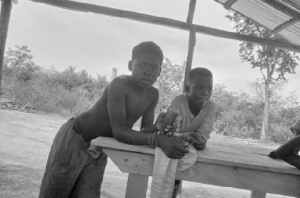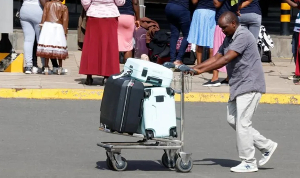Oti Region is one of the newly created regions of Ghana in December 2018. The
region was carved out of the Volta Region. The major ethnic groups are the
Guan-speaking tribes and they include Krachi, Nchumuru/Chonke, Buem, Nkonya,
Asante, Akyode, Adele, and Ntrobo, among others. The region equally has migrant
settler tribes such as Dagombas, Konkombas, Kotokolis, Hausa, and Ewes.
It is believed that over 30 languages are spoken in this region among an estimated eight hundred thousand people (2021 Population Census). The region is composed of six districts: Krachi East, Krachi West, Krachi Nchumuru, Biakoye, Nkwanta North, and Nkwanta South. The regional capital is Dambai, while the rest of the regional departments and agencies are spread across the districts.
The major economic activities include farming, which forms 60% of the total work force, and others, including fishing, poultry, and trading. Admittedly, the people in this region are hard-working, as seen in the daily routine movement of farmers in the morning and fishermen almost all the time. In the context of development work, community engagements cannot be done in the morning in about 99% of the communities in the Oti region, even if "the announcement is made on national television.”. Implicitly, the people are always engaged in their livelihood activities of farming, trading, and fishing.
Despite these daily struggles by inhabitants, poverty continues to be high across the districts in the region. But wait a minute! Are the inhabitants really poor? What is the average funeral cost in the region? Granted, the inhabitants are poor; what investments are they making in the education of their children to break the cycle of poverty through education?
"Education is the passport to the future, for tomorrow belongs to those who prepare for it today." This quote summarizes the theme of this article in great detail. In the Oti Region, where I am part of a team implementing the Ghana Education Outcomes Project, permit me to share my reflections based on the over 300 communities that I have visited across the six districts in the Oti Region.
Ironically, many of the children in all the formal schools that I have been visiting lack basic school items such as pens, pencils, books, uniforms, and bags, among others. Teachers in the region grapple with the lack of these learning materials daily, which hinders effective teaching and learning in the
classroom.
Unfortunately, some parents across the districts in the region do not prioritize investing in their children’s education. While some parents are doing so well in providing basic school items to their children, others prefer investing in funerals of dead relatives to show their "might" in wealth in funerals and poverty in education. The lack of furniture in the region among schools is a pandemic, with children even sitting and lying on the floor in some schools, while others come with plastic chairs or stools without tables for use during lesson delivery.
In all these communities, the funeral cost for a dead relative could buy 50 dual desks for schools, but there is no way. Their pride and joy are not in education but in funerals! The social impairment of believing in costly funerals seems to be more important to many families than educating their children to help break the multidimensional poverty situation in the region. I have observed with shock the difficulties associated with the parent associations of schools at the basic level in organizing even meetings, talking less about oversight responsibility in supporting the administration of schools.
In sharp contrast, families and communities can spend a fortune organizing funerals for dead relatives, while children in the same families have no basic school items for effective learning at school. What’s more? I have seen a whole community travel out with children to another community for a funeral, causing formal schools in both communities to temporarily close. Clearly, the dignity of the dead is very important to every family, including the writer, but
Must the social impairment of costly funerals be allowed to incapacitate the future of our young ones?
Certainly no! Religious bodies and development organizations must rise to
orient the minds of the inhabitants to focus more on the future of their children than the dead. Well, life has always been a choice: to invest in the education of children or to save fortunes for costly funerals of dead relatives who might equally not be in support of it while resting in peace.
I have always maintained that education is the most powerful tool for fighting poverty and building resilient households in rural communities. The inhabitants of the region will continue to reap the seeds of their choices for many more years to come, to secure their tomorrow through investments in education or otherwise. Whichever way it goes, death and education are inevitable!
Opinions of Friday, 8 March 2024
Columnist: Mohammed Fusheini















